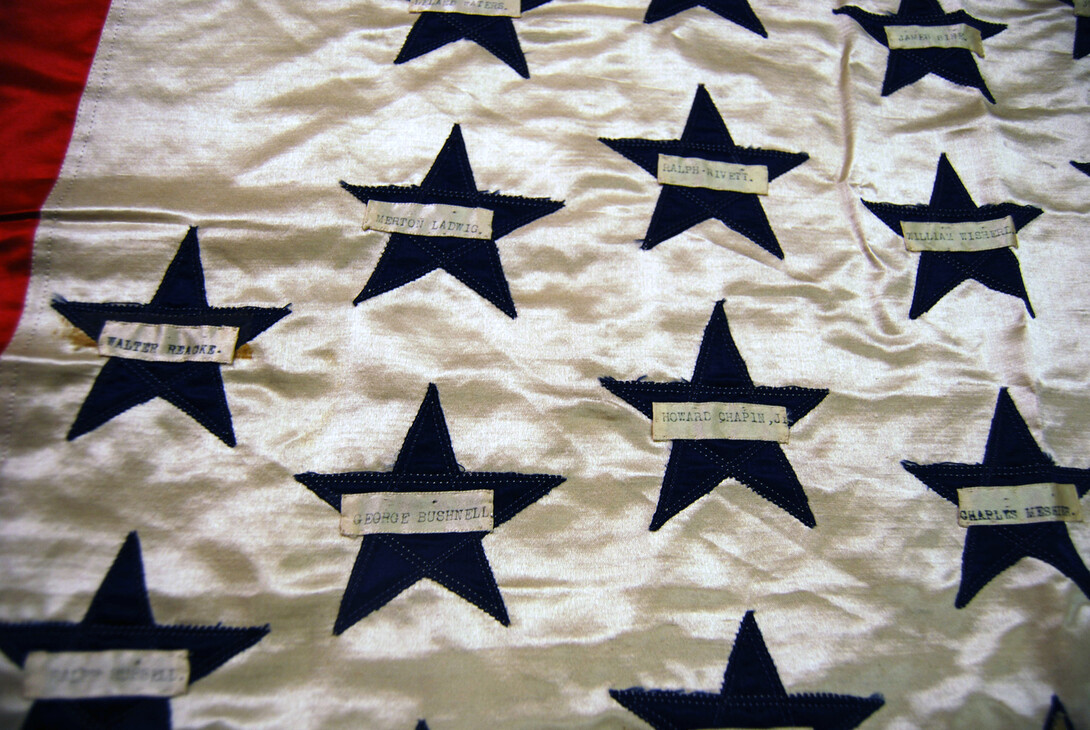
The handwriting was delicate cursive, easily readable, but the words made little sense to UNL history students carefully turning the pages and photographing each for future archival use.
“The handwriting is beautiful,” Ashlee Anderson, a junior from Daniel, Wyo., said. “The fact that I’m handling these things is really amazing.”
Anderson was among a group of UNL history undergraduates that offered the 2014 History Harvest, March 15 at the Nebraska History Museum. The project allowed the students to digitize more than 150 artifacts, almost all related in some way to Nebraska History.
As Anderson laid out items to be photographed, senior Grace Thomas of Albert Lea, Minn., stood on a ladder handling the camera. The duo took guesses as to what the letters contained, based on the facts they knew — the letters were written by German-Americans in 1864 and 1865 when the Civil War was ravaging the United States.
While they could only raise conjecture now, the students said the plan was to translate the letters and add them to the digital archive that will be created with the History Harvest finds. Other rare items the students recorded include a scrapbook from the mid-19th century kept by Benjamin Franklin Thomas, who spent 11 years traveling with a circus, and five boxes full of artifacts tracking the history of the city of Lincoln and First-Plymouth Church.
Some of the artifacts will be digitized by the students in the coming weeks. All of the artifacts cataloged during the harvest were brought in by local citizens, who were also interviewed about the individual items.
Angi McAndrew of Lincoln admitted she didn’t see much historical value in the eyeglasses, miniature safe and pipe that she brought. To her, the items are family heirlooms that belonged to her grandfather and date back to the late 1800s, but she decided to share them at the event because she thinks “it’s important to archive these things.”
“They may not seem very historical to me, but in another 50 years, they will be very historical,” Angi said. “I think this is a very cool thing they’re doing.”
The History Harvest is part of a class taught by Will Thomas, professor of history, and aims to collect the “people’s history.” Since its inception at UNL several years ago, the project has been used in other communities in the United States and UNL recently helped Chadron State College launch their own History Harvest projects.
For more information, go to http://www.historyharvest.unl.edu.








